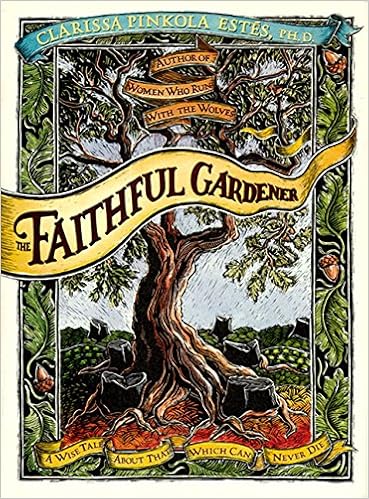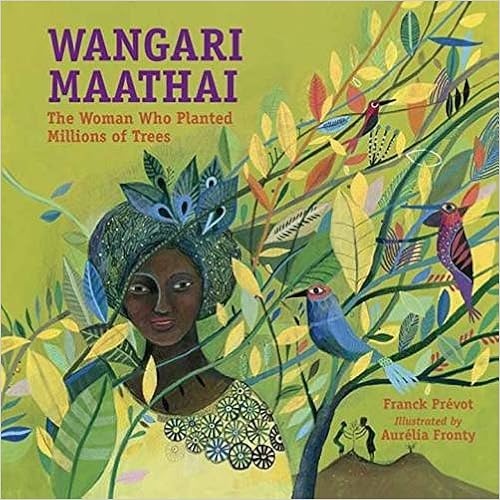Welcome back from Spring Break! The rainy start to our time off was perfect for settling in with a book or two. I finished the first two books of Gillian Anderson's The Earthend Saga and started the third. I'm also reading Clarissa Pinkola Estés' pocket storybook, The Faithful Gardener: A Wise Tale About That Which Can Never Die.
Estés is a storyteller, the kind you find at your kitchen table when family gathers. I read her bestseller Women Who Run with the Wolves: Myths and Stories of the Wild Woman Archetype several years ago, which opened my eyes to the nuances of classic fairy tales and the deeper meanings behind them. This story is more personal, coming from her own immigrant family experiences.
In honor of Women's History Month, I pulled this book from my review pile:
Author Franck Prévot and illustrator Aurélia Fronty begin Wangari's story with a picture book and end with a timeline, nonfiction passages and primary source photographs of Wangari's life, the current state of Kenya and its forests, and quotes from Wangari's autobiography. Wangari was born in Kenya in 1940, when girls rarely went to school in the then- British-ruled country. Her brother prompted their mother to send Wangari to school; she eventually went on to earn her Ph.D. Her greatest accomplishments lie in the reforestation movement in Kenya, empowering native Kenyans to recapture their land from corporations and fight for a democratic government.
Wangari Maathai: The Woman Who Planted Millions of Trees is a great read-aloud to share with older elementary students to begin a biography unit. It concludes with a bibliography and website resources, so teachers can segue with ease into a discussion of nonfiction text features for research.
It's Monday! What did you read over spring break?



No comments:
Post a Comment